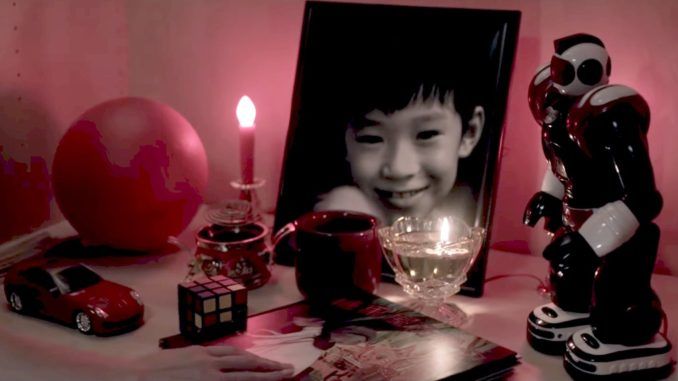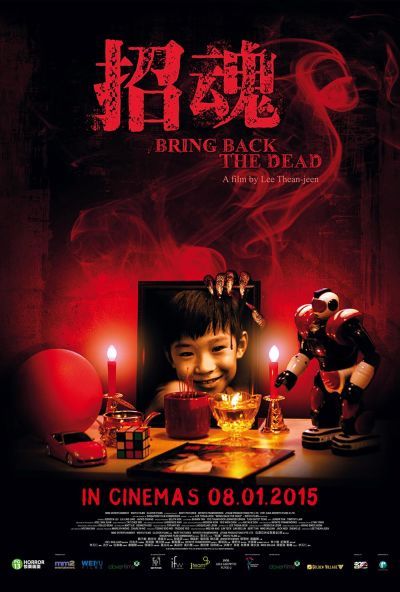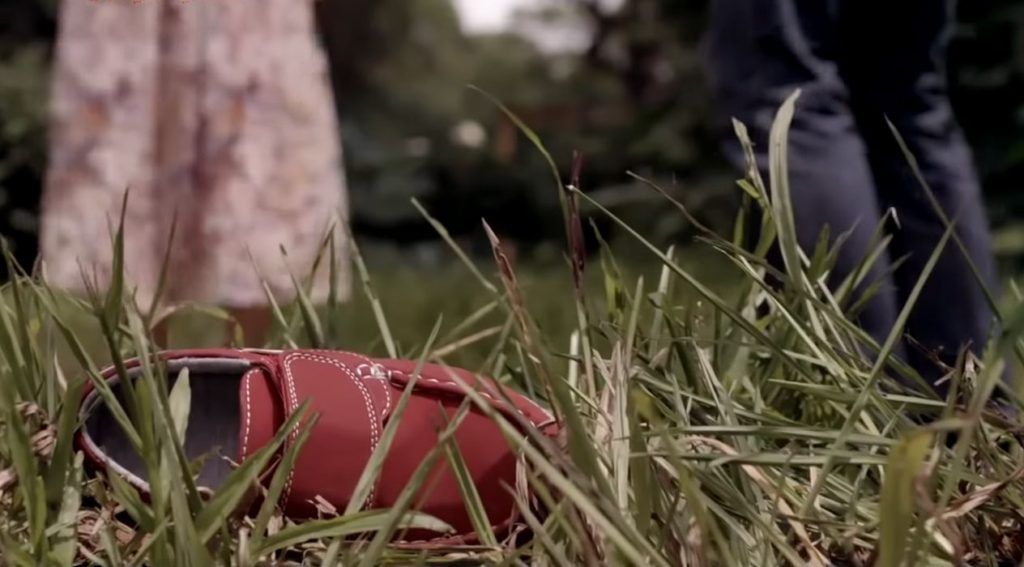
Rating: B-
Dir: Thean-jeen Lee
Star: Jesseca Liu, Jacko Chiang, Ling Ling Liu, XueTing Tjoa
Singapore always seems to be too serious of a country to bother with trivial nonsense like horror films. It’s busy instead making bank, caning obnoxious American brats and proving that a multi-party political system is vastly overrated. It crams more than the population of Scotland into an area smaller than Orkney, so it feels like making a movie would also involve a lot of apologizing for getting in the way. Recent figures seem unavailable, but Wikipedia says that in 2011, fifteen homegrown features were made, representing about five percent of the local box-office. For horror, it doesn’t help that local censorship remains quite strict. In 2021, Paul Verhoeven’s Benedetta was banned outright in Singapore, for being “insensitive and offensive to the Christian and Catholic faith.” To which, I imagine the director snorting derisively, “Yaas. End yoor point isss?”
Bring Back the Dead is on considerably safer ground. On the highest level it is a rehash of a concept dating back at least 120 years, to W. W. Jacobs’s short story, “The Monkey’s Paw.” The basic idea is that if someone is killed, no matter how tragic the circumstances… just leave them that way. Bringing them back, whether through simian limbs, pet semataries, or occult ritual, never goes well. Yet, no matter how many times it goes horribly wrong, there always seems to be an endless stream of bereft relatives, eager to meddle in matters with which they shouldn’t. This is only plausible, in a world where nobody is aware of the multitude of fictional depictions, from Buffy the Vampire Slayer through to Re-animator. Things in all these, inevitably end up much worse for everybody concerned.
 It’s therefore no spoiler to say, that’s exactly what happens. Jia En (J. Liu) is happily married to her businessman husband De Wei (Chiang). They have a young son, Xiao Le, who is a bit naughty. An early scene sees Mom catching him drawing on the newly-painted walls, an incident which gets Xiao Le a visit from Mr. Cane. In an contemporary American film, this corporal punishment would be used as an indicator of abuse; in Singapore, it seems to be perfectly normal parenting, going by its matter-of-fact depiction here. For his seventh birthday, Xiao Le gets a puppy, and a party is thrown. But when his hard-working Dad is singing him Happy Birthday over the phone, Xiao Le runs off after his new pet, into the road and… yeah. Dad hears it all, as his son is run over and killed by a car.
It’s therefore no spoiler to say, that’s exactly what happens. Jia En (J. Liu) is happily married to her businessman husband De Wei (Chiang). They have a young son, Xiao Le, who is a bit naughty. An early scene sees Mom catching him drawing on the newly-painted walls, an incident which gets Xiao Le a visit from Mr. Cane. In an contemporary American film, this corporal punishment would be used as an indicator of abuse; in Singapore, it seems to be perfectly normal parenting, going by its matter-of-fact depiction here. For his seventh birthday, Xiao Le gets a puppy, and a party is thrown. But when his hard-working Dad is singing him Happy Birthday over the phone, Xiao Le runs off after his new pet, into the road and… yeah. Dad hears it all, as his son is run over and killed by a car.
Jia En is, understandably, distraught, not least because her doctor has told her she won’t be able to have any more kids. While talking to Xiao Le’s former nanny, Seetoh-jie (L-L Liu), she hears about a medium who can bring her son’s spirit back to the house. This requires them to carry out a ritual at the grave, and bring back an artifact – specifically, a finger off the corpse – which will anchor the deceased’s soul to the house again. All kinda creepy, yet initially, it seems to have done the job, and Jia En begins to sense a presence around the house. However – and again, this should not come as any kind of a shock to anyone except the protagonist – it’s not long before she starts to suspect something is wrong, and what has come back from the graveyard, is not her son at all.
In terms of content, this isn’t so far from the previous Singaporean movie I reviewed, The Maid. Looking at horror from SE Asian countries (and, yes, this is a sweeping generalization), it seem that spirits and ghosts are far and away the most frequent topic for the genre. You don’t often get slasher films out of this region, for example. Despite this, as noted, the way things unfold will still be very familiar: there hasn’t been much effort put in to bring anything new to the table. Yet, I will say, what it does, is done skillfully, with Jesseca Liu’s performance very much the glue that holds things together. Director Lee had problems casting his lead: actresses generally were either put off by the genre or weren’t ready to play the role of a mother. He hit the sweet spot in Jesseca, who is very convincing at portraying the pain and sense of loss.
 The other thing the film gets right, is that it feels like the movie itself believes in the supernatural concept at its core. At times, Western film-makers might be too cynical to be able to sell a ghost story effectively, crossing their fingers behind their backs while they recount their spooky tale. That doesn’t seem the case in Bring Back the Dead, and makes it all the easier for the audience to buy into the idea that something has taken up residence in Jia En’s house. The eventual explanation is a good one, which I don’t want to spoil: it’s a very twisted reflection of the same forces which drove Jia En to act as she did. Less effective is some of the stuff around the edges, such as her suspicions that De Wei is having an affair with the new maid. This doesn’t add much, except perhaps to demonstrate Jia En’s cracking psychological state.
The other thing the film gets right, is that it feels like the movie itself believes in the supernatural concept at its core. At times, Western film-makers might be too cynical to be able to sell a ghost story effectively, crossing their fingers behind their backs while they recount their spooky tale. That doesn’t seem the case in Bring Back the Dead, and makes it all the easier for the audience to buy into the idea that something has taken up residence in Jia En’s house. The eventual explanation is a good one, which I don’t want to spoil: it’s a very twisted reflection of the same forces which drove Jia En to act as she did. Less effective is some of the stuff around the edges, such as her suspicions that De Wei is having an affair with the new maid. This doesn’t add much, except perhaps to demonstrate Jia En’s cracking psychological state.
On the technical side, it’s solid. The effects are mostly low-key and understated, likely reaching their peak where the spirit basically reaches through Jai En’s body. Yet they are adequate for the job, while both the visuals and score do a decent job of generating atmosphere. And in a film on this topic, being successful in manipulating the overall tone could be the most important element. It’s clearly not a work interested in pushing boundaries or being a thinly-disguised vehicle for social commentary. The aspirations here are simpler: tell an old-school ghost story. There’s a reason why the concept behind “The Monkey’s Paw” continues to resonate with audiences, well over a century past its initial publication. It just works.
This review is part of our October 2024 feature, 31 More Countries of Horror.
